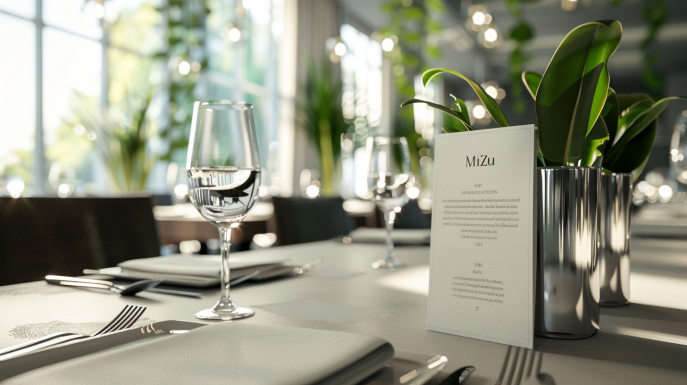Do you love cooking? Do you regularly find new recipes to broaden your knowledge of food? If so, you've probably fantasized about opening up your own restaurant at one point in time. But have you considered starting a catering business? Catering can be as fulfilling as a restaurant without all the responsibilities that come with starting a restaurant. But it's one thing to make meals for your close ones for fun - it's another thing to set up huge gatherings and prepare food for hundreds of people.
Many people don't realize the extent of time and money it takes to set up a catering company. But if successful, a self-catering company can be pretty rewarding. Catering is much more flexible and ideal to start compared to that of a restaurant. It's less expensive and allows you the freedom of flexible work hours and a good job market as caterers continue to rise in demand. Keep reading to find everything you need to know to start your own catering business.
What to expect in the world of self-catering
Many people wishing to start a catering company admire the outside shell of what catering is all about; successful events, happy customers, great food, and pats on the back. But most fail to understand the extent of time and willpower it takes to receive these benefits. To truly enjoy catering is to enjoy the countless hours of food prepping, planning, and unusual work schedule that comes along with the job. Each step in the catering process requires time and effort to flourish.
Before the event, you're going to have early days planning events and late nights gathering paperwork. Before the event, you'll figure out food allergies, take a headcount, and set up seating and food tables.
At the time of the event, you're going to need proper food transport to be sure the food presentation is pristine. As the boss, you're going to spend lots of time dealing with issues, supervising and overseeing food production, dealing with complaints, and keeping a clean and friendly environment.
After the event, paperwork, invoices, and payroll are going to keep you busy. You'll be meeting with new clients, planning menus, hiring, and then training your staff. You'll be doing all this on top of overseeing the marketing and advertising needed to keep you in business.
Self-Catering takes a lot of time and effort to be successful and is not for the faint. A self-caterer should be extroverted and resilient as well as have a planning skillset and people skills to keep business running smoothly. They must be able to successfully market to provide a great menu with competitive pricing that attracts the client. Additionally, they should have a fair amount of people skills to be able to sort out disputes between your staff and the clientele, and a large amount of experience in managing a business.
Steps to Start your Catering Business

1. Obtain Proper Licenses and Insurance
Starting a self-catering business has many more components to it than just setting up shop in your home kitchen. Food and liability insurance is a crucial first step in any foodservice operation. Aside from the logistics and marketing needed to form your business, you need to comply with several legal regulations. What if your food gets somebody sick? Or an employee slips while at work? Look into setting up an LLC (Limited Liability Company) over a sole proprietorship as this will give you the legal protections you need and will keep your personal assets out of potential lawsuits. Self-Catering displays more potential risks than regular restaurants as you're going to be the one preparing, transporting, cleaning up after an event. Investing in insurance is always a good idea. Check with local catering companies to see what type of insurance they have if you have trouble deciding.
2. Decide Where to Conduct Business
Renting
Many people use their home kitchens for their catering businesses, but this isn't a reasonable option for everybody. What if your kitchen isn't big enough to store food for fifty-plus people? What if your home isn't able to meet requirements for legal permits? There is a solution that not many people consider:
Rent a commercial kitchen.
It is more common than you think! Since many states prohibit the use of residential kitchens for commercial food production, renting a commercial kitchen is a cheaper option and often times more reasonable than trying to comply with legal confinements in your home kitchen. Nevertheless, many self-caterers are home-based. Home-based caterers are subjected to specific permits and must pass regular state health inspections.
Renting a commercial kitchen doesn't mean you won't need permits. You'll need to obtain a business license, health permits, food-handling licenses, and liquor licenses if you wish to sell liquor.
Home-based
Nevertheless, many self-caterers are home-based. Home-based caterers are just subjected to specific permits and must pass regular state health inspections. If you opt for a home-based kitchen, you're going to need proper food storage and a place to hold your food at the appropriately warm or cold temperatures. Customize your kitchen to fit your catering needs, such as more ovens, larger refrigerators, deep freezers, etc. Assess your catering needs and buy equipment accordingly. Be sure you're taking the appropriate safety measures to keep your food from becoming contaminated in storage, during preparation, and while in transport.
Food truck
Many self-caterers opt for a food truck as it provides easy transport as well as an on-the-spot kitchen. Food trucks are becoming more popular within the catering industry, but there are some limitations. Food trucks have limited capacity, forcing owners to stick to a specific menu or a theme such as icecreams, burritos, tacos, etc. You also have to add in insurance costs to your budget, and as a self-caterer, that can add up.
Food trucks are easy to set up, but because of poor planning, instant-gratification, and trends, the majority of food truck caterers go out of business within the first three years of operation. Many people only search for the immediate accomplishment that a food truck provides but fail to maintain the works required to keep it in business over time.
3. Study the Local Catering Competition
Although catering is a growing industry, it's very competitive. When deciding if catering is right for you, take in the local competition. Your location only has a certain number of mouths to feed, and there will always be some competition where ever you set sail. You must have strong marketing to compete with locals yet maintain strong ratings and profit to keep you in business. Overall profit margins vary but "typically clock in at around 10 percent..." as most of your revenue will go to staff salaries, utilities, rent, and ingredients. Maintain financial management to keep profits rolling in.
Expect to have long workdays and an on-call work schedule when owning a self-catering business. You must be able to fully invest just about every aspect of your life into this business if you wish to succeed.
4. Write a Menu and Set Pricing

You need to be a great cook if you want to start a catering business! Create desirable and unique dishes to attract customers, while at the same time having classic foods as people are more likely to buy what they already know.
To set your pricing, calculate labor and ingredient costs. Pricing will continuously vary as your company grows. You may need to adjust from fixed pricing to inclined pricing as your business grows, so be sure to refer to a pricing guideline to set these measures. You should consider food allergies, special diets, and trends when pricing your dishes. Additionally, create a restaurant menu that highlights your best offerings and caters to your target market.
5. Hire Staff
A proper staff is crucial to ensure your catering business is a success. Hire individuals with specific characteristics to establish smooth operations during planning, preparation, and at the time of your catering event. Ask yourself how many staff members you need and can afford to pay. Below are some characteristics you should expect with each of your catering staff:
Chefs:
Chefs should have a genuine passion for cooking. They should have good experience in the culinary arts field and a good understanding of food hygiene, kitchen safety, and food preparation. Chefs must be able to work quickly in a busy kitchen, often multitasking many meals at once.
Assistant Cooks:
Assistant cooks must have good communication and teamwork skills with not only the customers but also the staff. They will be working closely with the chefs and dealing with food presentation and hygiene. They must be able to work long hours, sometimes on weekends, in a stressful environment, and remain enthusiastic and patient.
Serving Staff:
Serving staff can become very stressed as they are dealing directly with the customers. They will be on their feet ninety-percent of the time, which means they must have good physical stamina. Serving staff must have excellent communication skills between the customers and staff members, great people skills, and an even greater memory.
Buy Equipment
There's no set amount of equipment you'll need for every catering event you conduct as some events will be larger than others. Before you dive into shopping for catering equipment, be sure you know what size of catering event you can handle and how many times a year you plan on hosting. Doing this will determine if you should rent or buy equipment. If you decide to own equipment, below is a startup list of what you should expect to buy:
- Chafing Dishes and Fuel
- Refrigeration
- Commercial Mixers
- Pans
- Ovens
- Transportation
- Table decorations
- Utensils
- Glasses
- Plates
- Serving Bowls
Market and Advertising
Marketing and advertising your business is what will make or break your operation. First, establish a brand for your business. How do you want your logo designed? What themes are you supporting? What about your websites and social media accounts that influence customers to come to you? Most of your traffic will come from the internet! Therefore you either need to be prepared to update your social media accounts regularly or hire a marketing firm to do that for you.
If you decide to hire a marketing firm, be sure they understand your marketing needs. They need to understand the catering environment and audience to bring in the most business. Be sure you have your menu on your website, and consider accepting online orders.
Starting a catering business takes a lot of work! But with a little patience, you'll be on your feet and have a rewarding outcome. Self-Catering allows you to express your creative freedom without the expense of starting a full-fledged restaurant. Following these steps will leave you off on a great start to your dream self-catering business!
